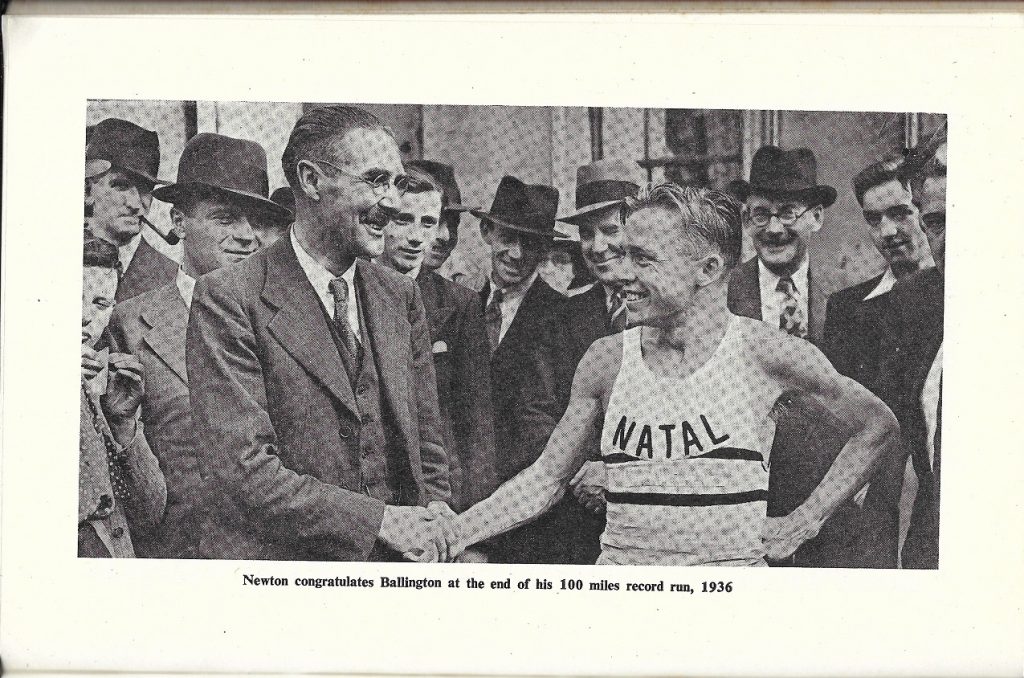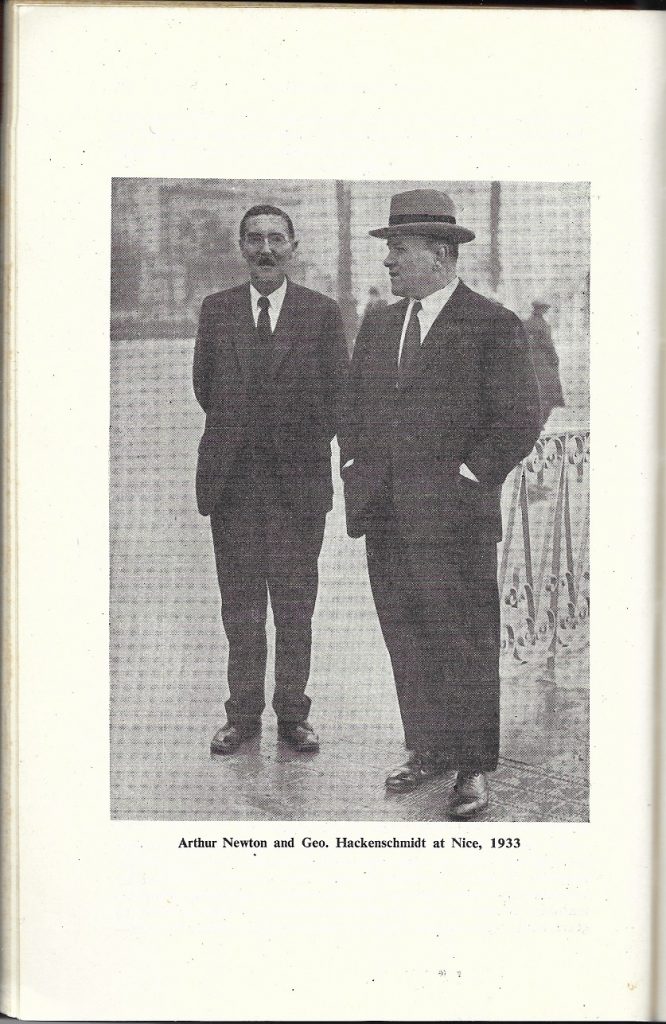CHAPTER XXIII
FOOD OR FADS
LET’S give theories, statistics and all that a miss, and have a casual look at diet from the ordinary active athlete’s point of view. What ought he to eat, when, and what effect does the food have on his abilities ?
You realise of course that every item of your physical make-up requires energy to keep it going ; even when you’re asleep heart, lungs, digestion and other odds and ends are all busy. According to the state of your health you have a large or small reserve of energy which can be drawn on at any time for any particular purpose. But first of all your physique (via the subconscious mind) will demand its quota whether you like it or not ; after that you may please yourself how you dispose of what’s left.
When you eat anything you have to supply energy to the organs which deal with the food, the amount depending chiefly on the sort of stuff you have given them. If it is of a very light and easily digestible character the expenditure may be almost negligible ; if it is heavy the requirements will be considerable. Your ” works,” via those of your ancestors from the time of Adam and Eve, know their job better than you do, and will either attend to it properly or refuse to tackle it at all—the margin between ” yes ” and ” no ” is pretty slight. Provided you’ve got the energy to spare and allow your works what they need, they will carry on in the very best style. But if you try to sidetrack what they reckon is theirs, they will get annoyed at once and start to kick ; continue with your robbery and they will call a lightning strike—you will vomit. It’s just a matter of plain commonsense ; if you don’t know what’s good for them, they do ; and they’re not going to waste time trying to make good your mismanagement.
But it’s not always like this. Sometimes you give them a dollop of fuel that doesn’t require much handling—sugar for instance. This seems to need so little in the way of assimilation that you can almost immediately let fly all your available energy in any direction, and your works won’t even hint at dissatisfaction. It’s useful to know this, as there are times when you badly need a bit of stoking to renew failing energies, and it is all important what effect the fuel will have.
Quite the best way to take sugar under these circumstances, and the quickest too, is to dissolve it in a short drink, either hot or cold, according to the atmospheric temperature. Diluted fruit juices, tea or coffee seem to be the most suitable for this purpose, for they give no hint of trouble, though it’s as well to remember that without sugar they are not really effective—it’s their sugar content that makes them worthwhile. By the way, don’t try and substitute glucose for sugar ; no matter what the text-books tell you it’s not in the same street so far as merit is concerned.
71
On the other hand milk, meat-extracts, cocoa and similar concoctions require a great deal more attention from the digestive system and are therefore quite out of place while further abnormal activities are in sight. Any of these drinks are perfectly good and healthy when you’ve got time to relax considerably while our innards get busy with them ; but commonsense tells you that when there’s no spare energy to apportion to the organs it’s useless to give them stuff that will call for it. It is unfortunate that our athletic authorities frequently supply dope of this sort to marathon runners during a race, just when it is most necessary to avoid it.
Even the most luxurious steak-and-kidney pie won’t hinder you for a moment if you are content to allow your digestion its normal quota of energy while you carry on with what’s left. You can put away a first-class feed of any sort and immediately get up and run, provided you are in reasonable training of course. But as there’s not in this case a lavish supply of surplus vim the running has got to be of a very casual nature, no more than a comfortable trot of some seven miles to the hour. You already know that you can walk quite comfortably immediately after a big meal, and you can trot just as serenely when you’re in training. Meat extracts, cocoa or anything else may be taken as a drink with this meal, and still there will be no ill-effects whatever so long as you stick to an easy jog-trot. Every day I set off for my training run immediately after a breakfast of porridge, eggs and bacon, toast and marmalade and probably two cups of tea. Of course this sort of thing applies only to cross-country and long distance practice ; if you’re out on the track for anything between hundred yards and three or four miles you’ll need to be more circumspect with regard to the previous meal ; relatively fast work spells greater expenditure of energy in much less time, and proper allowance must be made for this. That’s why much more time must be allocated to digestion in the case of shorter distances than is necessary for long-distance work.
A long period of meticulous experimenting taught me that a simple unchanging diet is not nearly as productive of energy as a varied one, as you can prove for yourself if you like to try. Also that a vegetarian menu is not as good as a meat one unless you actually prefer it. You didn’t make your likes and dislikes with regard to various foods, Nature managed the business for you ; Nature generally knows what is needed, and what is needed is right. Saddle your digestion with anything you seem to fancy and you need have no qualms.
It comes to this, then ; so long as you are not about to race you can eat anything you like : the mere fact that you like a thing is proof that it is good for you so long as you don’t indulge to excess. To eat stuff that you don’t like or don’t care about is only loading your stomach with unwelcome goods, and it won’t get through its business with any enthusiasm, what’s more it won’t fail to object if you persist. You can take it as gospel, then, that particular dieting for athletes can be spatchcocked once and for all ; exercise, eat and drink like a healthy man and that’s what you will be.

